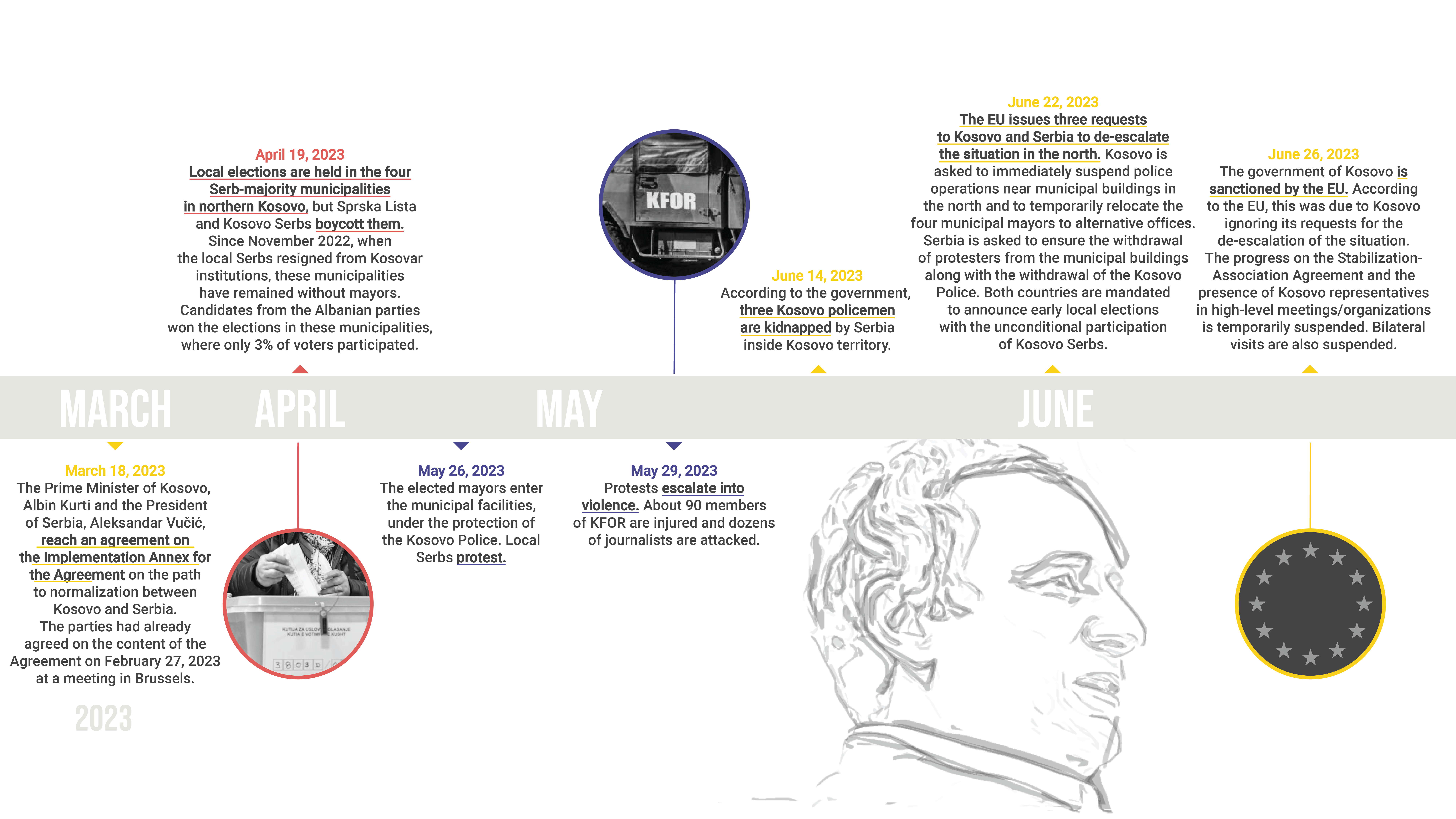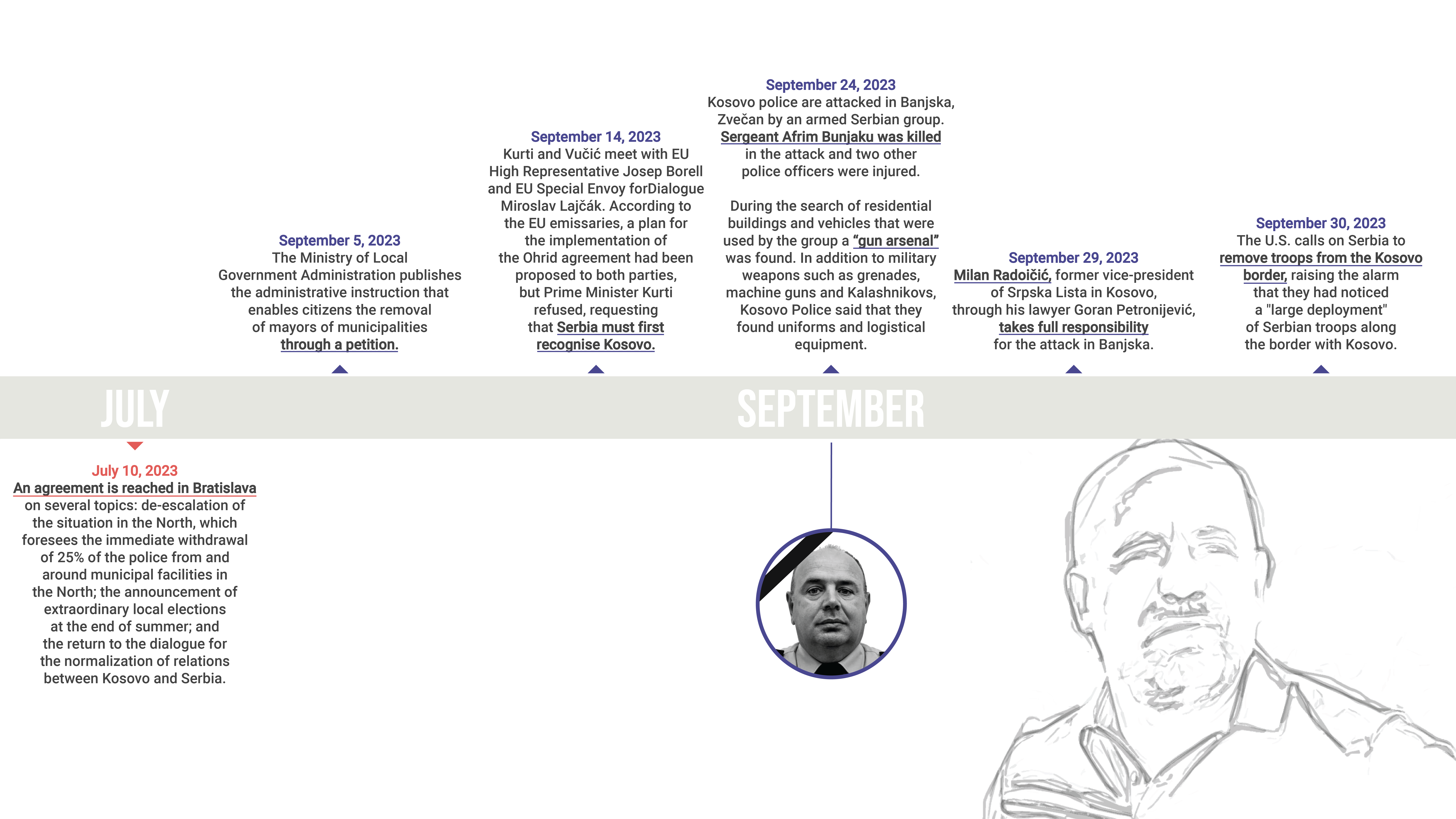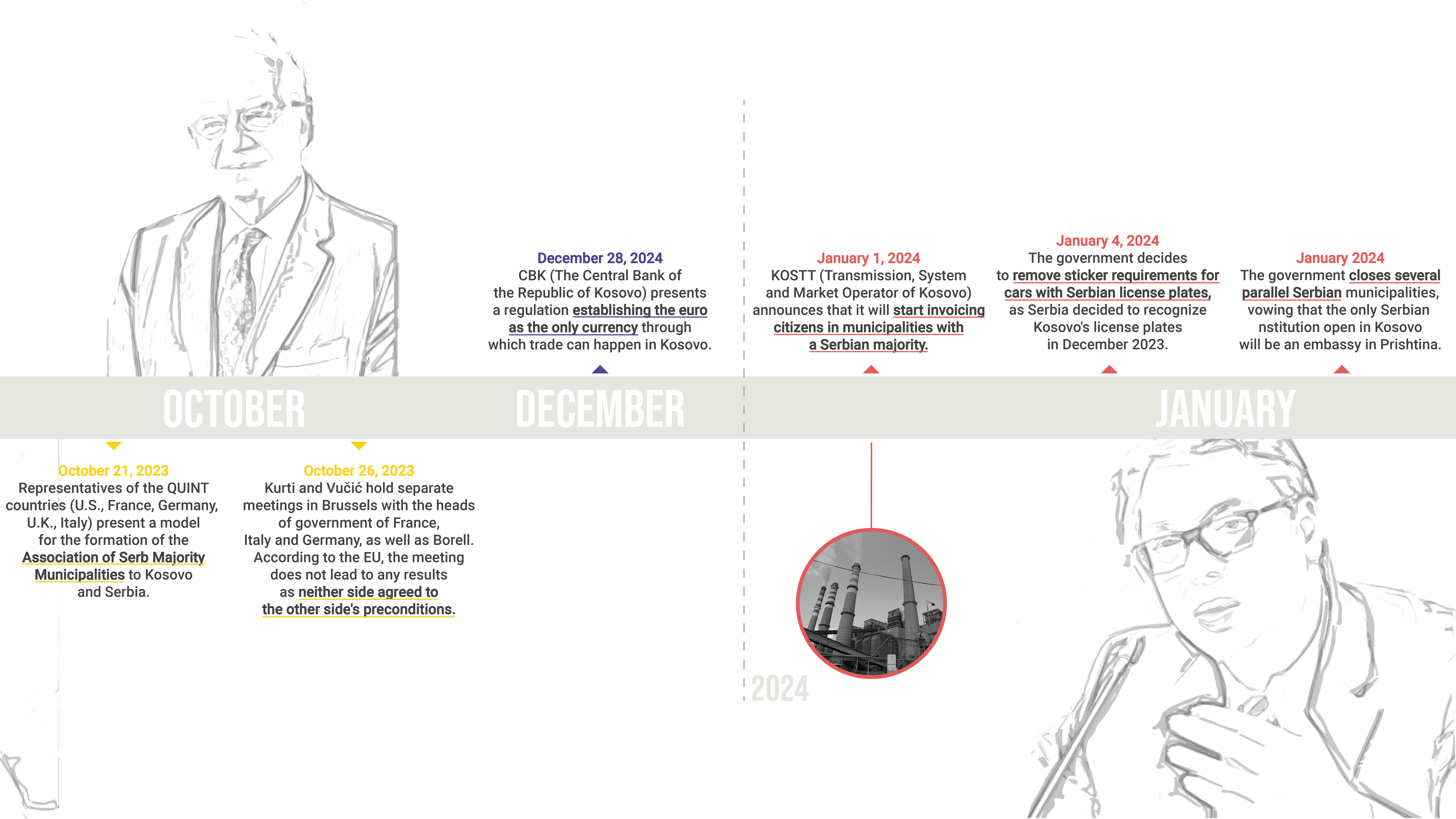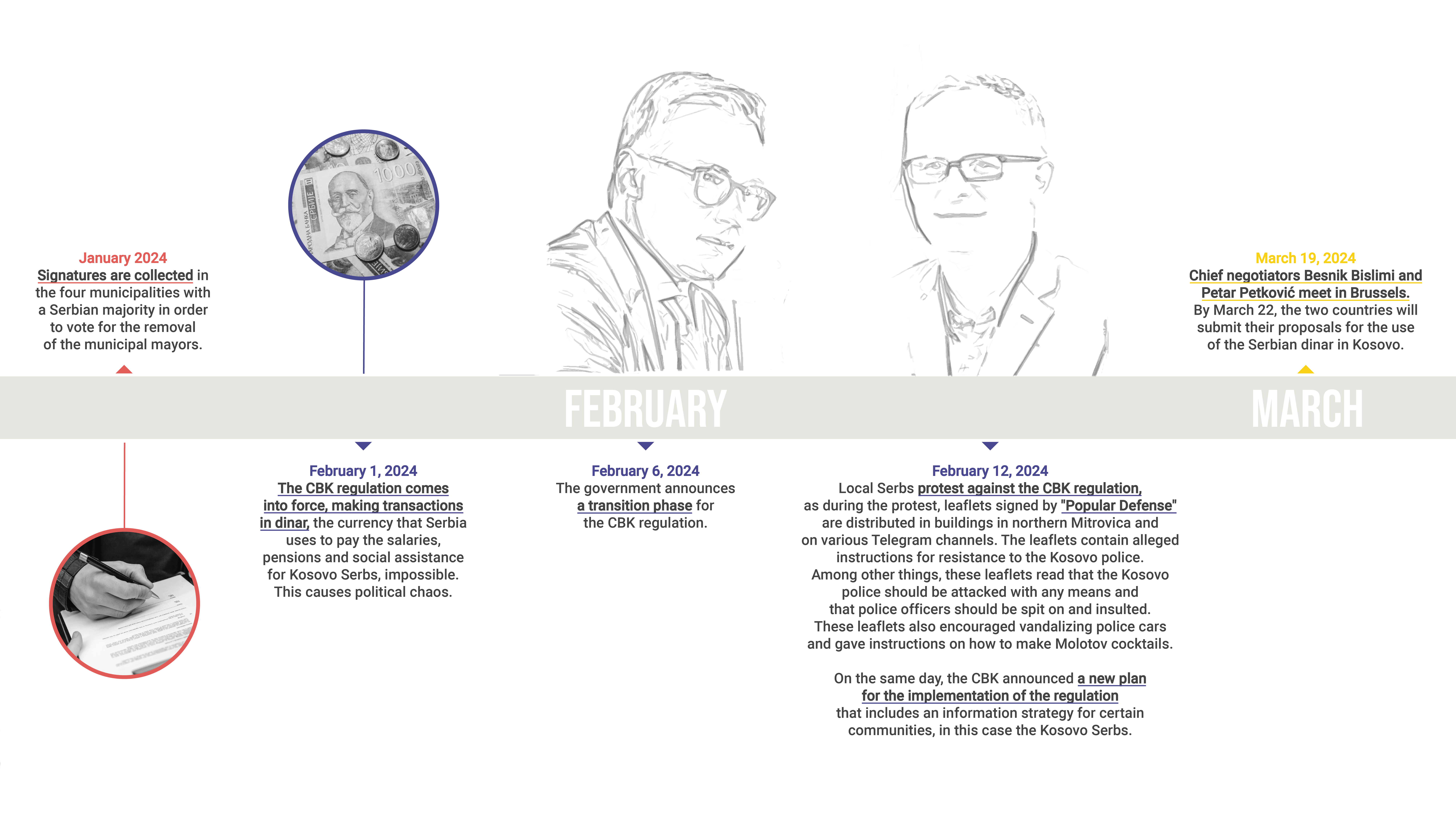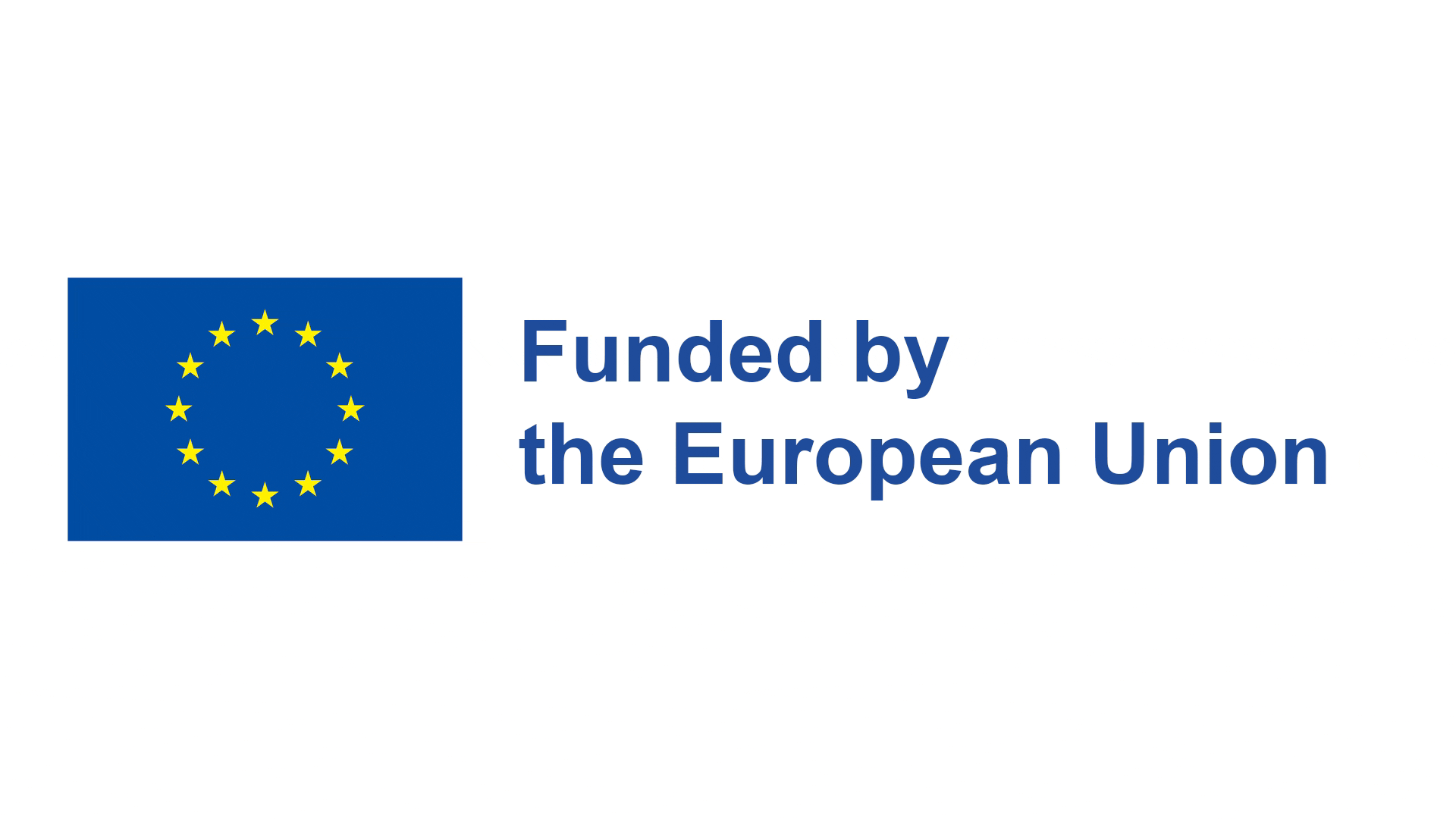
Suspended funds, suspended progress
The impact of European Union measures on Kosovo.
By Arian Lumezi & Federico Baccini — 09/7/2025
The large doors of the Lumbardhi cinema in Prizren were opened for the last time on May 31 of this year. Starting this month, the oldest cinema in Kosovo will undergo a radical renovation, a process considered essential for improving the facilities of one of Prizren’s most important cultural institutions.
Lumbardhi cinema, located near Shatërvan Square, has always been in need of intervention, but starting work on such a project has been impossible due to a lack of financial resources. Ares Shporta, director of the Lumbardhi Foundation, the organization that manages the cinema, explains that the foundation began working on the concretization of the project back in 2014, when Samuel Žbogar, then head of the European Union Office in Kosovo, verbally expressed his willingness to support the renovation plans.
Lumbardhi cinema received its first concrete funding commitment in 2017, but the EU institutions only approved the project in 2020, with the opening of the tender. This process was concluded and approved in 2022 but failed in the autumn of 2023 for technical and administrative reasons. In October 2024, Lumbardhi received official notification of the project’s final cancellation, which were the result of measures imposed on Kosovo by the EU. At least 800,000 euros in grants that had been foreseen for the cinema were completely lost.
The political and economic measures were imposed in June 2023, following a chain of events in northern Kosovo that fueled interethnic tensions in North Mitrovica and complicated the EU-mediated dialogue process between Kosovo and Serbia. The EU described these measures as “reversible, depending on the steps that Prime Minister Albin Kurti takes to de-escalate the situation.”
How did the measures come about?
In May 2023, protests erupted in Serb-majority municipalities after non-Serb mayors, who had won mandates in extraordinary local elections in those municipalities, entered municipal buildings escorted by the Kosovo Police (KP). These elections had been boycotted by Serb voters, and the largest Serb party in Kosovo, Srpska Lista, did not participate. Srpska Lista led the protests, calling the mayors illegitimate.
These protests quickly escalated into violent clashes, involving not only local citizens but also NATO-led KFOR troops. The entry of the mayors into municipal buildings, with the assistance of the KP, was criticized by the EU as a unilateral and uncoordinated action by the Kosovo Government.
On 22 June 2023, the EU presented three demands to the then Government of Kosovo, led by Vetëvendosje (VV), and to Serbia, which aimed at de-escalating the situation in the north of Kosovo. The demands included the immediate cessation of police operations near municipal buildings, the temporary relocation of four municipal mayors to alternative premises to carry out their duties, and the organization of early local elections with the unconditional participation of the Serb community. At the same time, the EU asked Serbia to withdraw protesters from municipal buildings.
Following the rejection of these requests by the Government of Kosovo, on 26 June 2023, the EU reacted by imposing measures, which included the temporary suspension of the Stabilization and Association Agreement (SAA), exclusion from high-level meetings and the suspension of bilateral visits — except for those taking place within the framework of the EU-facilitated dialogue. These measures, adopted in a unanimous vote by the Council of the EU, had immediate consequences not just for political relations but also for funding, signaling a serious escalation between the EU and Kosovo.
These measures are not formally classified as sanctions, which would require unanimous approval every six months from all 27 member states. Instead, they follow a procedure under the Common Foreign and Security Policy (CFSP) framework, which likewise requires unanimity in the Council for their removal.
In its December 2024 enlargement conclusions, the Council stated that the EU “will gradually lift” these measures “in parallel with further steps” taken by the Kosovo authorities. As a result, the Commission announced that it had begun work toward a “gradual, conditional, and reversible” lifting of the measures. However, when asked for further clarification by K2.0, the European Commission declined to provide details regarding the procedure, possible timeframe, or the specific conditions that Kosovo would have to meet in terms of “progress on the ground” and “sustainable de-escalation” in the north of Kosovo.
“They must be revoked completely and without delay,” Riho Terras, the European Parliament’s rapporteur on Kosovo, told K2.0. If the EU’s objective is to restore dialogue between Kosovo and Serbia, “unfair treatment of Kosovo does not support that objective,” he added, stressing that since Serbia’s behavior amid tensions in the region has not been met with any measures by the EU, it is “completely unacceptable” that the measures against Kosovo have not yet been lifted “without delay”.
Over the past two years, projects worth more than 600 million euros have been suspended or postponed indefinitely.
During a visit to Kosovo on 22 May this year, the High Representative for Foreign Affairs and Security Policy, Kaja Kallas, announced that the EU had begun gradually lifting measures against Kosovo, describing this as a sign of commitment and a step toward new opportunities for Kosovo’s rapprochement with Europe. However, she stressed that this decision was conditional on progress in de-escalating the situation in the north and warned that “the closure of structures supported by Serbia undermines efforts toward de-escalation.” The EU has criticized the acting Kosovo government for shutting down parallel structures in Serb-majority municipalities, actions that the government has presented as steps toward extending sovereignty in this part of Kosovo.
Suspended progress
When initially implemented, these measures were considered temporary, with the expectation that they would be lifted once the situation normalized. However, as time passed, it became clear that these sanctions were far from temporary and were increasingly having serious consequences for Kosovo. Over the past two years, projects worth more than 600 million euros have been suspended or postponed indefinitely.
With EU financial support, Kosovo had long been implementing development projects, whether to modernize infrastructure or improve public services. But under these EU measures, the necessary funds began to be cut off. Programs such as IPA (Instrument for Pre-Accession Assistance) and WBIF (Western Balkans Investment Framework), through which Kosovo implemented projects in the energy, education, and digitalization sectors, were severely affected. These sanctions have not only resulted in the loss of EU financial support but also reduced the capacities of local institutions to improve infrastructure and public services.
The GAP Institute for Advanced Studies, in May 2025, published a detailed report on projects that have been lost or suspended as a result of the EU’s measures.
The majority of the over 600 million euros allocated to suspended or delayed projects came through the two main EU funding programs: IPA II and IPA III. These funds were intended to support Kosovo’s path toward EU membership; without them, it is difficult to implement important projects for development. The challenges are particularly acute in sectors such as agriculture, rural development, and public administration, but the impact has also been felt in road infrastructure, schools, and the energy system.
As Rrona Zhuri, research coordinator at the GAP Institute, explains, even if the EU were to lift these measures today, the consequences of the two-year delay go far beyond the financial losses alone. The damage has already been done, and Kosovo will feel the effects for a long time to come.
Some of the suspended projects
The three largest projects suspended by EU measures:
- Prishtina water supply and sewerage network: This project has a total value of €165,251,140. The application was submitted in 2023 under the WBIF mechanism but did not proceed to approval.
- Reconfiguration of the 400 kV network and new 400 kV interconnection Albania - Kosovo: This technical assistance project, with a total value of €70,682,000, was among the applications not processed in 2024.
- Rehabilitation and construction of flood protection infrastructure and irrigation systems: This technical assistance project, valued at €66,181,195, was also submitted in 2024 but did not proceed to approval.
“For example, the measures may have slowed economic development, hindered the energy transition, and affected environmental protection, as many of the projects focus on the energy and environmental sectors,” said Zhuri. “There are other projects aimed at infrastructure development, so the measures have also negatively affected progress in infrastructure and digitalization.”
Meanwhile, at the Lumbardhi Foundation, the EU measures have had an impact beyond just the financial resources involved.
“Every year we have prepared ourselves for this restoration; this situation has greatly affected trust within the community, our activities, planning, staff, and other areas,” said Shporta. “I have given 10 years of my life to this process, this could have been done many years ago. They have wasted our time, and we have lost trust in the EU.”
According to Shporta, the renovation project of the oldest cinema in Kosovo has been vital for them. “The restoration was also aimed at eliminating any idea or attempt at privatization. We have been advocating for this since 2015, when we founded the organization,” said Shporta.
He explained that the project, which was planned for direct financing and management by the EU, envisaged capital investment in infrastructure. The goal was to intervene at the structural level of the building, restore the interior, and renew the heating, cooling, ventilation, and seating systems — essentially to fully improve the building, fix various infrastructural problems, and transform the space into a multifunctional venue with optimal conditions. After the failure of EU funding, the project received support from the Government of Kosovo, through the Ministry of Culture, Youth and Sports (MCYS), and the cinema is now closed for renovation. Shporta said that the budget allocated by the ministry is sufficient to carry out the works, while, according to him, the government has pledged to allocate additional funds for the project as needed.
Doubling capacity of Termokos heating plant in Prishtina
Among the list of projects at risk from these measures is the project to increase the capacity of the central heating plant, Termokos, in Prishtina — a project that, in addition to boosting heating capacity, is also tied to energy efficiency and environmental protection. Through this project, Termokos aims to double its heating capacity, its costs are currently listed as suspended due to EU measures amounting to €17.6 million.
The director of the public enterprise Termokos, Fisnik Osmani, explains that the total planned cost for the project is €63 million, of which €31.8 million is planned as a loan from the European Investment Bank (EIB), €17.6 million as a grant under the IPA funds, €9 million as a contribution from the Government, and about €5 million from the Municipality of Prishtina.
According to Osmani, the grant worth €17.6 million is tied to the €31.8 million loan agreement. Therefore, securing the loan is conditional for obtaining the grant. This means that the EU measures impact not only the availability of the funds but also the ability to finalize the loan agreement, making the entire project dependent on the EU lifting its measures against Kosovo.
“The project has an extraordinary impact on the entire energy system in Kosovo,” said Osmani. “It is expected to significantly expand the [heating] network in Prishtina — about 90% more consumers; around 20,700 residential units and businesses will be connected to Termokos, effectively doubling the capacity, which, in terms of residents, means about 82,000 people and over two million square meters.”
District heating in Prishtina has been operating through a cogeneration model since 2014. The cogeneration project at the Termokos enterprise utilizes excess steam from the “Kosova B” power plant to produce thermal energy, which is transported via an 11-kilometer pipeline to the city’s central heating system. This heat supplies over 20,000 users in Prishtina, contributing to energy efficiency and reduced air pollution.
“The project has already been postponed for a year, since last September. If there are further complications, I fear we could jeopardize the entire project,” said Fisnik Osmani, director of the public enterprise Termokos.
The cogeneration model, launched as a project in 2014, included rehabilitating the distribution network, the construction of modern substations, and installing advanced monitoring technology. The project was implemented through an investment of around 37 million euros, provided by the EU, Germany, and other partners. Germany supported the cogeneration project at Termokos mainly through the German Development Bank (KfW), contributing 15 million euros, of which 10 million were grants and five million were loans.
The suspended project aims to double the capacity of this same system.
“In total, we aim to reach 280 megawatts [with the new project], 40 of which are intended for the municipality of Obiliq, while 100 megawatts will be used by Termokos through the expansion of the network,” said Osmani. According to him, the project also includes the installation of an additional pipeline running 11.5 kilometers from the Kosovo Energy Corporation (KEC) to Termokos, as well as the construction of two thermal power stations: one for steam extraction at KEC and the other for heat reception at Termokos.
This is a critical project for the infrastructure of Prishtina, where winters are harsh and an improved heating system is vital. Osmani fears that this coming September will be the last opportunity to get this project back on track.
“The project has already been postponed for a year, since last September. If there are further complications, I fear we will jeopardize the entire project,” he said.
The most complicated aspect of the situation, however, is the uncertainty of when the EU might lift these measures. Local institutions have no clear answers, no timeframe for when the measures will be lifted, and no clarity on the conditions that Kosovo must meet for their removal. It seems as if Kosovo is stuck in a vicious cycle of waiting, with no clear end in sight.
Feature image: Ferdi Limani / K2.0
This article was produced as part of the PULSE Networks, a European initiative supporting transnational journalistic collaboration.
Want to support our journalism?
At Kosovo 2.0, we strive to be a pillar of independent, high-quality journalism in an era where it’s increasingly challenging to maintain such standards and fearlessly pursue truth and accountability. To ensure our continued independence, we are introducing HIVE, our new membership model that offers an opportunity for anyone who values our journalism to contribute and become part of our mission.
Become a member of HIVE or consider making a donation.

